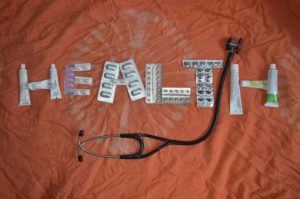Over 75% of senior citizens take prescription drugs, and one-third of them take at least six at the same time. With numbers like these, the cost is one of the biggest problems regarding the concerns of medicare beneficiaries. Even with the government’s medicare insurances and private insurance companies covering the costs of prescription drugs, there are still co-pays, coverage gaps, and coinsurances that leave people to pay out of their pockets.

And with the prices going higher and higher every year, the costs can still take a big chunk of an individual’s money. Of course, with these high costs, there will be a financial drain that will stretch a person’s budget up until the breaking point. When that happens, the medication will stop and, ultimately, will worsen their situation.
Luckily, it doesn’t have to happen this way. With a little research, there are several ways for you to cut off a huge chunk of your medication costs, giving your finances a breather. These options will surely help you pay off your prescription meds without sacrificing the quantity and quality. Hence, here are some of the things you can do to reduce the costs of your prescription medicines.
Discuss It With Your Doctor
Yes, simply sitting down and telling your doctor that you’re short in money and you might be unable to buy all his prescribed medicine can work. It’s actually one of the most effective ways on this list, as by being a doctor, they can safely advise you to take generics instead. Although doctors would prescribe you pricey medications most of the time, they don’t have any qualms in letting you take generics instead.
That is as long as the generics have the same intended effect on your condition, of course. For example, let’s say you’re deciding between prescription vitamin D vs. over the counter supplements. You’ll probably be advised to go for the otc generic since they are 90% much cheaper than the branded ones, so it’ll save you money. Or, if your medicine doesn’t have any generic, you can ask your doctor instead if there are any therapeutic substitutes, which are essentially just different drugs but with the same effect.
Not only that, but if your doctor sees that you don’t need to take some of our medications or if you’re okay with a smaller dosage, they will tell you.
Shop for a Pharmacy
Just like how we can shop around for most of the things we buy, we can also shop for our pharmacy of choice. Of course, the location, staff, or loyalty might keep bringing you back, but sometimes, that loyalty can strain your pockets. Remember that every medicine has different prices according to the pharmacy.
If you are going to buy all your medicines, including your oral medication help from one pharmacy, you can request them for monthly discounts. While most pharmacies already have a 10% to 20% discount on offer, you can push for more if your monthly medication bill is on the higher side.
That said, shopping around can get you to a pharmacy that sells your medicine at a much lower price. In addition, you can call or visit new pharmacies and check how various plans can cover your medication in different pharmacies in your area.
You might even find out that the costs would be significantly much lower if you switch to a different pharmacy even with the same plan. If you want to dig deeper, you can even leave out chain stores and consider a grocery store pharmacy or a big-box retailer.
Also, don’t leave out the small independent pharmacies as they tend to be able to negotiate with you when it comes to prices. Not to mention that they tend to have big discounts that will save you hundreds if you buy from them in bulk. Of course, they do this to compete with other distributors, so it’s up to you to take advantage of these promotions.
Pharmaceutical Assistance Programs
Most pharmaceutical manufacturers offer discounted prices and other assistance programs for people who are qualified. Of course, not every company has discounts or promotions for every drug, but when your medication has one, then you better take it.
These programs can take a huge chunk of discounts from your medications, especially when they are pricey and if you buy them in bulk. You can reach out to the company directly, or you can search for your medicine in Medicare.gov and see if there is somewhere you can go where you can save a lot of money.
For example, let’s say you need a popular rheumatoid arthritis drug called Humira. They are manufactured by AbbVie Biopharmaceuticals and can retail for $7k a month. The price is steep and can strain your budget. However, if you access the company’s income-based assistance program, you can get the Humira for just $5 a month, sometimes even free.
Or, if your state is offering a pharmaceutical assistance program, sign up for it. However, know that each state has its own programs, so checking the local Department of Health can help you.
Takeaway
Medication prices are going through the roof as the years go by. Thus, the government and private institutions are offering programs for those in danger of stopping their medications because of financial problems. There are a lot of these programs; all you have to do is look.





